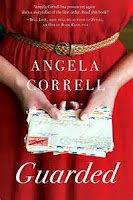I read
The Blood of Christ in preparation for Lent, but rather than being a morbid journey through Christ's pain, the book was a source of joy and unceasing delight as I pondered the precious gift of His blood.
As a teacher of the Old Testament I have understood the need for blood sacrifice for the forgiveness of sins but never gave much thought to the cleansing aspect of the law. I figured that the clean/unclean regulations were pretty much from "olden times" and had expired with the cross. But Murray's observations brought me up short. First, I never thought about the implications of someone touching a dead body and the fact that they would be unclean for seven days. I never stopped to think what that said about death. Murray writes,
Death, as punishment for sin, made everyone who came in association with it unclean. Death was so repugnant to God, so outside of His plan, that someone could not even touch a corpse without becoming contaminated. Living in the post-cross era, I had forgotten how horrible death is. It was the chief result of sin.
Second, Murray talks about the need not just for forgiveness (the blood on the altar) a work done FOR us, but that there must be a work done IN us, which the cleansing laws clearly reveal. Clear statements such as this,
God's objective is to abolish sin in our lives, were astounding. It should not be a distant hope but a present reality. The unbroken fellowship that God desires with each one of us is a real possibility because of Christ's work on the Cross.
Sanctification was the great object of the suffering of Christ.
Another astonishing fact that Murray brings out is that Christ suffered the horrors of the cross because of his love for ME! Not just out of obedience, or love for the Father, but FOR ME! To think that Jesus loved ME so much that he gave himself willingly, has been a thought that has blessed me anew.
The Cross is the full revelation of true love...The Cross tells us that He loved us so much that this love surmounted every difficulty - the curse of sin, the hostility of man, the wrath of God....What we need is a proper view of Jesus and of His all-conquering eternal love.
One final point that blessed me: Murray writes that with His blood Christ purchased every man from every tribe, language people and nation. Thus we must take Him to the nations because the power of the blood has far-reaching effects on the world. That blood gives us the courage we need to enter enemy territory and also the love needed to go and take the Good news to others.
This has been a life-changing book for me. It has renewed my faith, my heart and my love for the Savior who has done so much for me.
(Guest post from my sister, Grace Ensz, fellow missionary, Christ-follower and book lover.)
































